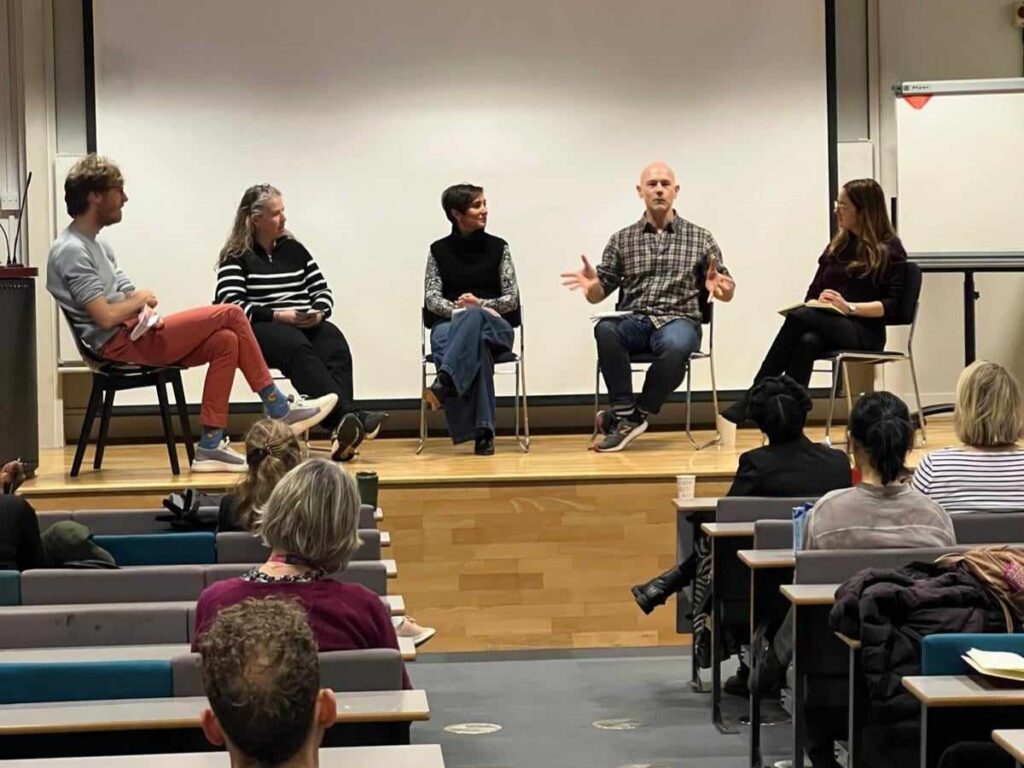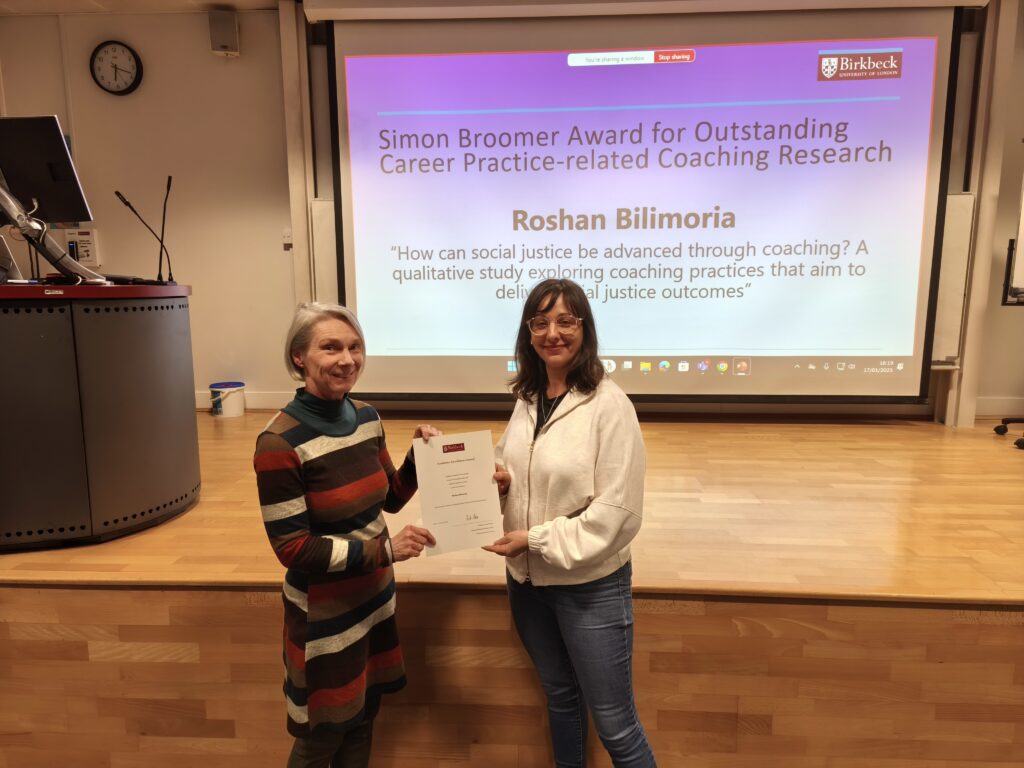The Dissertation Showcase events held by the People, Work and Organizational Psychology subject group within Birkbeck’s Business School are designed to celebrate the outstanding postgraduate research carried out by Birkbeck students. Here, Dr Kevin Teoh, Dr Lukas Wallrich and Janet Sheath reflect on the most recent event which showcased dissertations from the 2023/24 student cohort.

With over 100 attendees joining both in person and online, the showcase provided a platform for emerging scholars to present their research and engage in discussions on pressing workplace issues. It also allowed current and former students to interact and exchange learning about the dissertation process, and for the Birkbeck community to celebrate the success of the 2023/24 cohort in completing their programmes.
Birkbeck Business School recently hosted the second People, Work, and Organizational Psychology (PWOP) Dissertation Showcase. The event on January 17th, 2025, brought together students, alumni, and staff, to showcase some of the outstanding dissertations from MSc students in Organizational Psychology, Human Resources Management, Career Coaching, and Coaching Psychology.
A highlight of the evening was the presentation of the Best Dissertation Award which featured as the main presentation that evening. This award was given to Tamara McBride for her dissertation on “Building Bridges for a Brighter Age: The moderating effects of subjective age and cross-age contact on age-based stereotype threat and disengagement among younger and older workers”
Two other dissertation awards were presented that evening:
- The Alan Wingrove Award for Best Coaching Dissertation – awarded to Katherine Powell for “I am human too…’: What are the negative effects of coaching upon coaches and what helps to reduce or abate them?”
- The Simon Broomer Award for Outstanding Career Practice-Related Coaching Research – awarded to Roshan Bilimoria for “How can social justice be advanced through coaching? A qualitative study exploring coaching practices that aim to deliver social justice outcomes”

The evening featured 13 individual presentations, grouped into three key themes reflecting the diversity of research in this field. The first theme, Lived Experiences and Identity in the Workplace, explored personal narratives and identity-related challenges, including neurodivergence, gender dynamics, and work-life balance.
The second theme, Leadership, Change, and Organizational Challenges, examined how leaders and employees navigate complex workplace transformations, including sensemaking during crises and diversity, equity, and inclusion efforts.
The final theme, Workplace Equity and Gender Dynamics, focused on systemic workplace inequalities, including coaching for social justice, flexible working arrangements for parents, and career progression barriers faced by underrepresented groups.
The event concluded with a Student-Alumni Panel Discussion, where past and present students shared insights on their dissertation journeys and how their research has shaped their careers. This interactive session highlighted the real-world impact of PWOP research, from influencing HR policies to supporting inclusive workplace practices and facilitating career transitions.
As the evening wrapped up, attendees reflected on the showcase as a testament to Birkbeck’s commitment to fostering critical, socially responsible research that bridges theory and practice. With another cohort set to embark on their dissertation journey, the event provided inspiration, motivation, and a reminder of the impact of rigorous research in shaping the future of work.
Birkbeck has been at the forefront of Organizational Psychology since 1962, when it became the first institution in the UK to offer a dedicated programme in the discipline. The school has continued to be a pioneer in research and teaching, launching the UK’s first online Organizational Psychology programme in 1981. Today, the People, Work, and Organizational Psychology subject group within Birkbeck Business School, focuses on understanding the interplay between people and work, with its interdisciplinary approach continuing to shape critical conversations around well-being, leadership, workplace equity, and the future of work.
The full list of presentations from the evening:
Lived Experiences and Identity in the Workplace presentations
- Shakyra Campbell – Coming Out: Neurodivergent workers’ lived experience of self-disclosure within the workplace
- Hayley Adamson – How do female service leavers experience their transition out of the military? An IPA study through a feminist lens
- Chloe Green – Balancing acts within leadership advisory firms: A qualitative study exploring employee perceptions of work-life balance and their boundary management techniques
- Jo Price – Organisational Mothers: How office housework contributes to gender inequity in the workplace
Leadership, Change, and Organizational Challenges presentations
- Rachel Grant – Beyond the Known: Leaders’ sensemaking during the liminal pandemic and post-pandemic periods
- Zoe Kennedy – Toxic or invigorating: Exploring EDI practitioner workplace experiences and change
- Elaine Bagshaw – A Foucauldian Discourse Analysis of how leaders and decision-makers in the UK discursively construct ‘return-to-the-office’ policies and practice
- Kiryl Tsikhan – Golden years or rusty pennies? Psychological factors that inform retirement saving behaviours
Workplace Equity and Gender Dynamics presentations
- Roshan Bilimoria – How can social justice be advanced through coaching? A qualitative study exploring coaching practices that aim to deliver social justice outcomes
- Sam Hewlings – Informal Parental Leave: How fathers in the UK construction industry use hybrid working as an alternative to Shared Parental Leave
- Bobbie Reynolds – Playing the game and disrupting social class barriers: Career progression experiences of working-class senior technology leaders
More information: